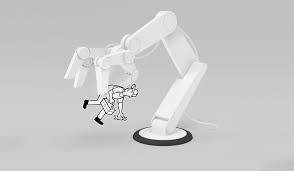Effect of Technology and Globalization on Corporate Jobs Part I – Blog Post #410 by Asrar Qureshi
Effect of Technology and Globalization on Corporate Jobs Part I – Blog Post #410 by Asrar Qureshi
Dear Colleagues! This is Pharma Veterans Blog Post #410. Pharma Veterans welcomes sharing of knowledge and wisdom by Veterans for the benefit of Community at large. Pharma Veterans Blog is published by Asrar Qureshi on WordPress, the top blog site. Please email to asrar@asrarqureshi.com for publishing your contributions here.
This article is inspired by the INSEAD article, the link of which appears at the end.
Technology and Globalization have been around since ages. Several hundred years ago, people traveled to far off places to find new resources. Many travelers settled in new countries in the hope of making their lives better. This was the earliest form of globalization. Similarly, technology has been evolving at all times, and was motivated by the need for making jobs easier and faster to achieve greater productivity.
Development of technology has gained much higher pace in the last five decades. Robotics is in common use, and Artificial Intelligence is being put to use in diverse ways.
Globalization is an accepted norm. With the help of technology, the entire world is just a click away. The industrial work has split in many continents. Large conglomerates have their main offices in US/Europe while manufacturing may be done in multiple locations.
The effect on jobs has been pronounced. The employment opportunities have seen contradictory increase and decrease. It is due to the fact that jobs have polarized drastically. The concept of ‘knowledge workers’ has solidified during the last four decades and has led to serious class disparity. The labor market has been consistently favoring high-skilled, cognitively challenging occupations.
The job polarization is leading to two categories mainly. The high-skilled jobs are mostly professional, technical and managerial in nature, requiring a high degree of mental refinement and higher level of education. At the lower end, there are jobs which are almost manual in nature; home services, security services, catering services, domestic help and logistic services are some examples of this kind. The manual jobs do not need or appreciate higher qualification.
How does it relate to Pakistan? We see the same polarization here.
There was a time when all young men and women, after obtaining a basic college/university degree could aspire reasonable progress in life, achieve economic prosperity, and enjoy higher social status after several years of hard work. It is not the same now. Just look at the Pharma business. People started at the entry level and gradually rose up the ladder. The senior managerial opportunities were less and would be achieved after 25-30 years of consistent hard work. By the time a person became Marketing Manager, he (almost always he) would be over 50 years of age. Even at the senior positions, the jobs were relatively simple and manual. Then the qualifications diversified and improved. More people with higher education were inducted in jobs, arguably at higher positions. The disparity started.
Presently, the Pharma marketing has become advanced and much more complex. It has gotten out of the reach of ordinary workers. Polarity has worked both ways; it has eliminated the opportunity for most entrants to reach the top, and it has created a professional elite which is disconnected from the lower end.
A very serious problem arising out of this situation is the gap in understanding of the ‘makers of strategy’ and the ‘executors of strategy’. They are living on different plains; they talk different language, and they see the market differently. Frustrations on both ends are hurting performance and increasing people turnover.
Apart from the two extremes, the major sufferers are the in-between or middle jobs; those which are working in routine processes requiring moderate level of skill. Office administrative staff, salespeople, craftspeople, tradespeople and skilled factory workers are included in this category. According to an OECD – Organization for Economic Development, these middle-skill jobs share decreased by almost 10 percentage points between 1995 and 2015.
The summary is that changes in the design, description and requirement of jobs are creating ‘employment polarization’ which is pushing workers towards the opposite ends of skills spectrum. INSEAD Professor of Economics Pushan Dutt highlights, economists refer to then as “lousy jobs and lovely jobs” – and devalues everything in between.
Another disparity arising out of employment polarization is the pay gap between ‘high-end jobs’ and all others. The wages of upper-tier workers have been rising continuously worldwide while the wages of average workers have seen little, if any, increase. Presently in Pakistan, the minimum labor wage set by government is 18,000 rupees which is not followed by the majority, who tend to pay less than this. The senior managers have crossed one million mark in terms of cash income, not including the many perks and other benefits. This disparity is massive and not justified in any way because the primary cost of living is the same for everyone; utilities prices are the same; staple food prices are the same; and everyday grocery items, meats, vegetables, fruits prices are the same.
How does this situation impact the future of job market? To answer that, we need to analyze and understand the factors behind employment polarization. According to research, two factors are contributing the most: Automation and Globalization.
To be Continued……
https://knowledge.insead.edu/blog/insead-blog/lousy-jobs-lovely-jobs-and-the-sagging-middle-10906
Disclaimer: Most of the pictures added to Pharma Veterans Blogs are taken from Google Images, and caution is observed for avoiding copyrighted pictures. However, in case such an event is reported, the impugned picture will be taken off with clarification.




Comments
Post a Comment